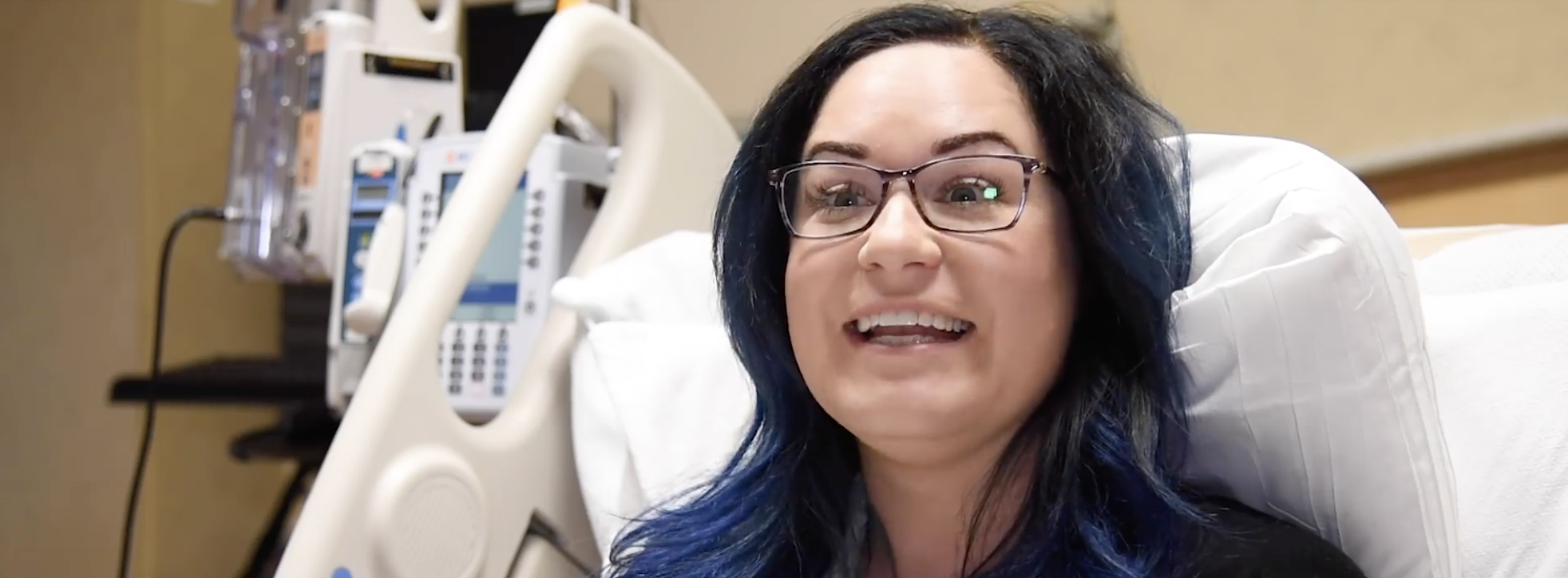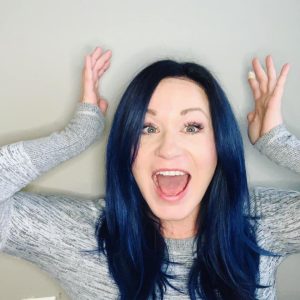WZPL personality Nikki Reed donates kidney to stranger


Nikki Reed ’07 (theatre with a concentration in radio) searched in vain for a reason not to donate a kidney. She really did. Surely there was some far-reaching health consequence. Even though it would be extremely beneficial to the recipient, there had to be negative long-term health implications for the donor. After all, that’s why we most frequently think of organ donation coming after death, right?
“The more research I did, the more I realized just how small a deal it is to donate a kidney compared to giving someone the gift of life,” Reed said. “I went into it looking for the thing that was going to say ‘this is a bad idea, don’t do it,’ and I just couldn’t find it.”
Reed is an on-air personality on 99.5 WZPL in Indianapolis, a co-host of the Smiley Morning Show, who first became interested in the idea of kidney donation because of a guest they had on the show several times: Butler University mascot handler Michael Kaltenmark. Kaltenmark had been on the Smiley Morning Show several times representing the university and was in the middle of health complications that left him in need of a kidney transplant.
“I wanted to do as much research as I could, to do a good job for him,” Reed said. “We’re not always a serious show but this is an important issue, so I wanted to do educate myself as best as I could to be prepared and do the discussion justice.”
The more Reed researched kidney donations, the idea of donating a kidney herself slowly began to take shape. Before long it became a calling. “The more you know about organ donation, the better you understand it, the more you realize how possible it is to do something like this,” Reed said. “The more I read about it, the more I looked at my life and the things I wanted to contribute to the world around me and it became clear: this was something I was supposed to do.”
Reed began the process of becoming a kidney donor by simply filling out an online form. She was soon informed that due to an overwhelming response to Kaltenmark’s story there was actually a waiting list to see if those people were eligible to be donors. It was at that point Reed was offered the opportunity to become what is referred to as an altruistic donor, which is a term used when a living donor makes a non-directed (to a specific recipient) donation. “I told them ‘No idea how this all works, but if you want to keep the process going, I’m game,’” she said.
The process can be a long one. There is a very extensive battery of testing which the potential donor must undergo in order to make sure that they are healthy, they have proper kidney function themselves, and there are no potential health risks that may present themselves once the donation has been made. Potential donors can get turned down for any variety of reasons, blood issues, cholesterol issues, and sometimes a person already only has only one functioning kidney (due to being born with only one, or being born with two but only one functional).
Eventually Reed was accepted as a donor it was full steam ahead. “When I realized that I wasn’t going to donate to Michael, it didn’t deter me,” she said. “I knew that there was someone out there who was suffering and I could help them.”
Learn more about kidney donation
Understandably her friends and family were supportive—but cautious. “A lot of first reaction was fear or concern,” she said. “Which I know comes from a good place, but it’s also because of a lack of understanding about the whole process.” Reed’s parents were especially worried, though she notes that they never told her not to do it. “They just needed that extra assurance,” she said.
The kind concern of others never instilled any fear for Reed. She was extremely thorough in her research so there was never a moment of doubt. “I thought it was a possibility I might get turned down, but I never questioned the fact that it was what I was supposed to do,” she said.
Just days before her surgery was scheduled to take place, Reed came down with a virus that attacked her lungs and ultimately led to the doctors delaying her donation because of fear of complications arising from the virus as well as being put under anesthesia.
“It was just devastating, I knew if there was any type of health hiccup that could happen,” she said. “I felt disappointed in myself, like I didn’t do enough. I felt horrible for my recipient because I heard they had just been told. There was a lot of guilt.”
Because of her role on the radio and actively using that platform to spread the message of organ donation and share her journey, Reed also dealt with a sense of guilt as it pertained to the community. “I was keeping most everything a secret until it was officially official,” she said. “I didn’t want to be ‘the girl who cried kidney.’”
Fortunately, her negative feelings were relatively short-lived as she and the doctors were able to reschedule her surgery a few short weeks later. Reed had her surgery on a Monday and was resting at her home by Wednesday night. “They say it’s two days in the hospital, two weeks until you’re “back,” two months to feel fully like yourself, and two years until you forget you ever did it,” she said.
As far as those far-reaching negative long-term health implications? She might actually turn out healthier for the whole experience. “Kidney donors tend to live longer lives because they tend to make healthier decisions because of their donations,” she explained. This includes things like eating less red meat, taking fewer anti-inflammatories, hydrating better, and just generally placing an emphasis on health in their lives.
Reed has been so thankful for all the people, in both her personal and professional life, that have reached out to her and the general reaction to her sharing her story. “Wonderfully overwhelming is probably the best way to put it,” she said.
To Reed, the most rewarding part of the journey has been hearing people say that they will look into donating or that they will put their name in to get tested to see if they are compatible with anyone in need.
“I just hope that when people come across an opportunity to do something for someone else – donating a kidney, giving blood or anything in between – even if it inconveniences their daily life, that they consider the huge positive impact that they can have on someone’s life,” Reed said.
By Garrison Carr, content strategist
